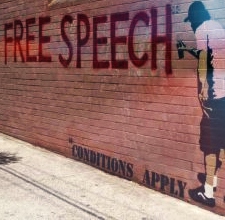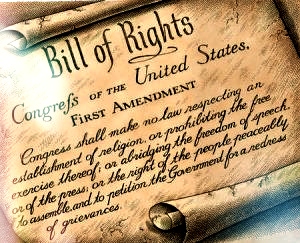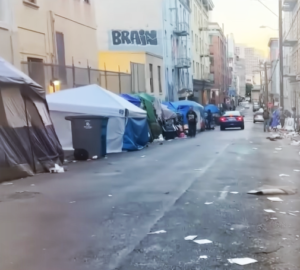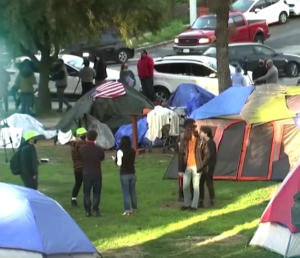Podcast: Play in new window | Download
Book Banning, Censorship And Freedom Of Speech
Americans have a love-hate relationship with freedom of speech: They love to protect their own free speech and they hate to protect the free speech of those they disagree with. The First Amendment to the US Constitution was intended to protect freedom of speech and freedom of the press, yet throughout American history, governments at all levels have censored speech and tried to muzzle the press.
The anti-censorship group PEN America, in a survey of the 2022-23 school year, found that “freedom to read is under assault in the United States — particularly in public schools — curtailing students’ freedom to explore words, ideas, and books.” Authors whose books are targeted are most frequently female, people of color, and/or LGBTQ+ individuals.
According to the American Library Association, the number of titles targeted for censorship surged 65 percent in 2023 compared to 2022, reaching the highest levels it has ever documented. According to Deborah Caldwell-Stone, director of ALA’s Office for Intellectual Freedom, “Each demand to ban a book is a demand to deny each person’s constitutionally protected right to choose and read books that raise important issues and lift up the voices of those who are often silenced.”
Guest – Robert Corn-Revere is Chief Counsel for the Foundation for Individual Rights and Expression, known as “FIRE.” He has practiced First Amendment law for 40 years. From 1989 to 1994, Corn-Revere served as legal advisor and later chief counsel to the Chairman of the Federal Communications Commission.
Corn-Revere is a prominent writer, thinker, and advocate on free expression issues and is regularly listed as a leading First Amendment and media lawyer by various national publications. He co-authored the three-volume treatise, “Modern Communication Law.” In 2021, Cambridge University Press published his book, “The Mind of the Censor and the Eye of the Beholder: The First Amendment and the Censor’s Dilemma,” which explores how free expression became a part of America’s identity. I reviewed “The Mind of the Censor” for Los Angeles Review of Books and called it an “entertaining, enlightening, and timely book.”
Another form of censorship – Report: Record Number of Journalists Killed in Gaza by Stephen Rohde
—-
Disappeared: Criminalizing The Unhoused
Late this June, the U.S. Supreme Court ruled that cities can punish people for sleeping in public places. In a 6-3 decision along ideological lines, the Court overturned lower court rulings that held it is cruel and unusual punishment under the Eighth Amendment to penalize people for sleeping outside if they had nowhere else to go. This ruling now allows localities the right to dismantle encampments of tents and cardboard coverings, even when there is no locally available housing or shelter.
Human Rights Watch has condemned this ruling and released a comprehensive report titled, You Have to Move! The Cruel and Ineffective Criminalization of Unhoused People in Los Angeles. The report documents the experiences of persons living on the streets, in vehicles, in temporary shelters, and in parks as they struggle to survive. In Los Angeles alone, tens-of-thousands of people are living in the streets, with death rates among the unhoused population reaching alarming levels. Governor Gavin Newsom, a supporter of the Court’s decision, has urged all local jurisdictions in California to destroy unhoused encampments. Several cities in the state have already begun doing so.
Western Regional Advocacy Project
The lack of housing is a national crisis, and this ruling raises the risk of increased use of such punitive tactics not only in Los Angeles but across the entire country.
Guest – John Raphling, Senior Researcher in the U.S. Program of Human Rights Watch and author of the report we’ve mentioned. Before joining Human Rights Watch, John spent years as a Deputy Public Defender in Los Angeles. He has represented political and community activists targeted for their activism, and homeless people prosecuted for crimes related to their status. John is also a member of the National Lawyers Guild.
———————————–




